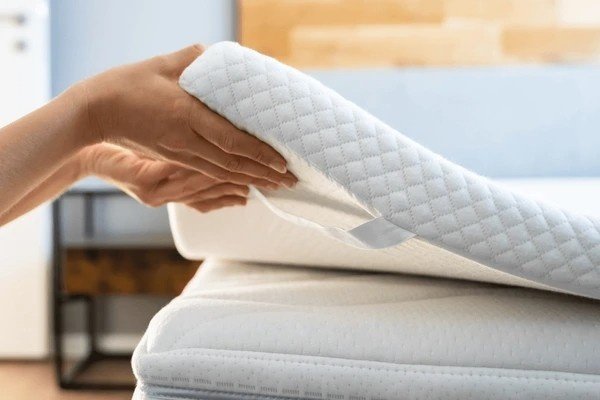Water softeners are one of those home appliances that can dramatically improve the quality of your daily life. Whether it’s about protecting your pipes, making your skin feel softer, or simply preventing your appliances from wearing out too soon, a water softener can make a significant difference. But with so many options available, how do you know which one is best for you?
In this guide, I’ll walk you through everything you need to know when selecting the right home water softener for your needs. From understanding how water softeners work to comparing various models, I’ll break it all down so you can make an informed decision.
Table of Contents
What is a Water Softener?
A water softener is a device designed to remove minerals like calcium and magnesium from hard water, replacing them with sodium or potassium. These minerals can build up in pipes, appliances, and even on your skin, leading to a variety of problems, such as scale buildup and dry skin. The water softener uses a process called ion exchange to remove these minerals, leaving you with “soft” water that is gentler on your appliances and your body.
Why Do You Need a Water Softener?
If you live in an area with hard water, you may have already noticed some of its telltale signs. Hard water can cause limescale deposits in your pipes, appliances, and water heaters, reducing their efficiency and lifespan. It can also leave your skin feeling dry and your hair lackluster. And let’s not forget about the impact on your laundry—hard water can make fabrics feel stiff and dingy over time.
By installing a water softener, you can prevent these issues and extend the lifespan of your appliances and plumbing. Additionally, soft water is gentler on your skin, hair, and laundry.
How Do Water Softeners Work?
Water softeners operate based on the principle of ion exchange. Inside the water softener’s resin tank, tiny beads of resin attract and hold onto the calcium and magnesium ions found in hard water. When water passes through the tank, the minerals in the water are exchanged with sodium or potassium ions from the salt in the brine tank. This process effectively “softens” the water.
After a certain period of time, the resin beads become saturated with calcium and magnesium, so they need to be cleaned or “regenerated.” This is where the brine tank comes in—it’s responsible for recharging the resin beads by flushing them with a saltwater solution.
Types of Water Softeners
When shopping for a water softener, it’s important to consider the different types available. Each type has its own set of features and benefits, so understanding which one works best for your home will help narrow down your choices.
1. Salt-Based Water Softeners (Ion Exchange)
These are the most common and effective water softeners. They rely on an ion exchange process to remove calcium and magnesium from the water, replacing them with sodium or potassium ions. They require regular salt refills for regeneration.
2. Salt-Free Water Softeners (Descalers)
Salt-free systems don’t remove minerals from the water. Instead, they alter the structure of the minerals, preventing them from forming scale buildup. These systems are typically maintenance-free and don’t require salt refills, but they are less effective in areas with extremely hard water.
3. Dual-Tank Water Softeners
These systems have two resin tanks, which allows one tank to regenerate while the other continues to soften water. Dual-tank water softeners are ideal for larger households that require a constant supply of soft water, as they can regenerate without interrupting the water flow.
4. Magnetic or Electronic Water Softeners
These are the least common and use magnets or electronic devices to alter the properties of hard water. While they are easy to install, their effectiveness is widely debated, and they are not as reliable as other types of water softeners.
Key Factors to Consider When Choosing a Water Softener
Now that we’ve covered the basics of water softeners, let’s dive into the factors you should consider when making your choice. This will help ensure that you pick the right model for your needs.
1. Water Hardness Level
The hardness of your water is one of the most important factors when choosing a water softener. If you’re unsure of your water’s hardness, you can have it tested or check with your local water utility company. The level of hardness is typically measured in grains per gallon (GPG).
- Soft water: 0-3 GPG
- Moderate hardness: 4-7 GPG
- Hard water: 8-12 GPG
- Very hard water: 13+ GPG
If your water is very hard, you’ll need a more powerful water softener that can handle higher levels of calcium and magnesium.
2. Flow Rate
The flow rate refers to how much water the softener can treat per minute. This is important because a high-flow rate ensures that your home’s water needs are met without interruption. A system with a flow rate that matches your household’s water usage will prevent any lag in water pressure.
3. Size of Your Household
Water softeners are rated by the number of people they can serve. Typically, the larger your household, the larger the system you’ll need. Consider how much water your household uses daily to determine the size of the softener.
4. Regeneration Process
Water softeners regenerate to clean the resin beads and restore their effectiveness. There are two main types of regeneration systems:
- Time-initiated regeneration: The system regenerates based on a preset schedule, regardless of how much water you use.
- Demand-initiated regeneration: The system regenerates based on how much water has been used, making it more efficient.
If you’re looking to save on salt and water usage, a demand-initiated regeneration system is more efficient.
5. Salt Usage
The amount of salt your water softener uses during regeneration can impact your maintenance costs. Salt-based systems require regular salt refills, and the frequency of these refills depends on the hardness of your water and how much water you use. When considering a salt-based system, look for models that are designed to be more efficient with salt usage.
Comparison Table: Different Types of Water Softeners
| Type of Water Softener | Effectiveness | Maintenance Requirements | Initial Cost | Operating Cost (Salt, Electricity) |
|---|---|---|---|---|
| Salt-Based (Ion Exchange) | Highly effective for very hard water | Regular salt refills, occasional resin cleaning | High | Salt and occasional electricity for regeneration |
| Salt-Free (Descaler) | Good for preventing scale buildup, less effective for very hard water | Minimal maintenance | Moderate | None, no salt required |
| Dual-Tank Water Softener | Continuous soft water supply | Regular salt refills, occasional resin cleaning | High | Salt and occasional electricity for regeneration |
| Magnetic/Electronic | Unproven and less reliable | Minimal maintenance | Low | None, no salt required |
Benefits of Softened Water
Understanding the benefits of softened water can help you better appreciate why investing in a water softener is worth it. Here are some of the key advantages:
- Longer Appliance Life: Soft water helps reduce limescale buildup, which can extend the life of appliances like water heaters, dishwashers, and washing machines.
- Softer Skin and Hair: Soft water is gentler on your skin and hair, helping to prevent dryness and irritation.
- Better Laundry: Clothes washed in soft water last longer, feel softer, and are more vibrant.
- Improved Cleaning: Soft water prevents soap scum buildup, making your cleaning more effective and less frequent.
Conclusion
Choosing the best home water softener requires considering your household’s specific needs, such as water hardness, flow rate, and the amount of maintenance you’re willing to handle. While salt-based softeners are the most common and effective, salt-free options may be more suitable for areas with moderately hard water. Dual-tank systems are ideal for larger households, and if you want a system that requires minimal maintenance, a salt-free or magnetic system might be your best bet.
By considering the factors I’ve outlined in this guide and comparing different options, you’ll be able to make a well-informed decision and enjoy all the benefits of soft water in your home.





